Foot wounds can be more than just a source of discomfort—they can lead to serious complications if not properly treated, especially for individuals with diabetes, poor circulation, or compromised immune systems. Patients often seek care for wounds that are slow to heal, painful, swollen, or showing signs of infection, such as redness or drainage. Even minor cuts, blisters, or sores on the feet can escalate into larger medical issues without prompt attention.
Our expert foot care focuses on cleaning, protecting, and monitoring the injury to promote healing, prevent infection, and reduce the risk of long-term damage, helping patients maintain their mobility and overall foot health.
Foot wounds can be more than just a source of discomfort—they can lead to serious complications if not properly treated, especially for individuals with diabetes, poor circulation, or compromised immune systems. Patients often seek care for wounds that are slow to heal, painful, swollen, or showing signs of infection, such as redness or drainage. Even minor cuts, blisters, or sores on the feet can escalate into larger medical issues without prompt attention.
Our expert foot care focuses on cleaning, protecting, and monitoring the injury to promote healing, prevent infection, and reduce the risk of long-term damage, helping patients maintain their mobility and overall foot health.
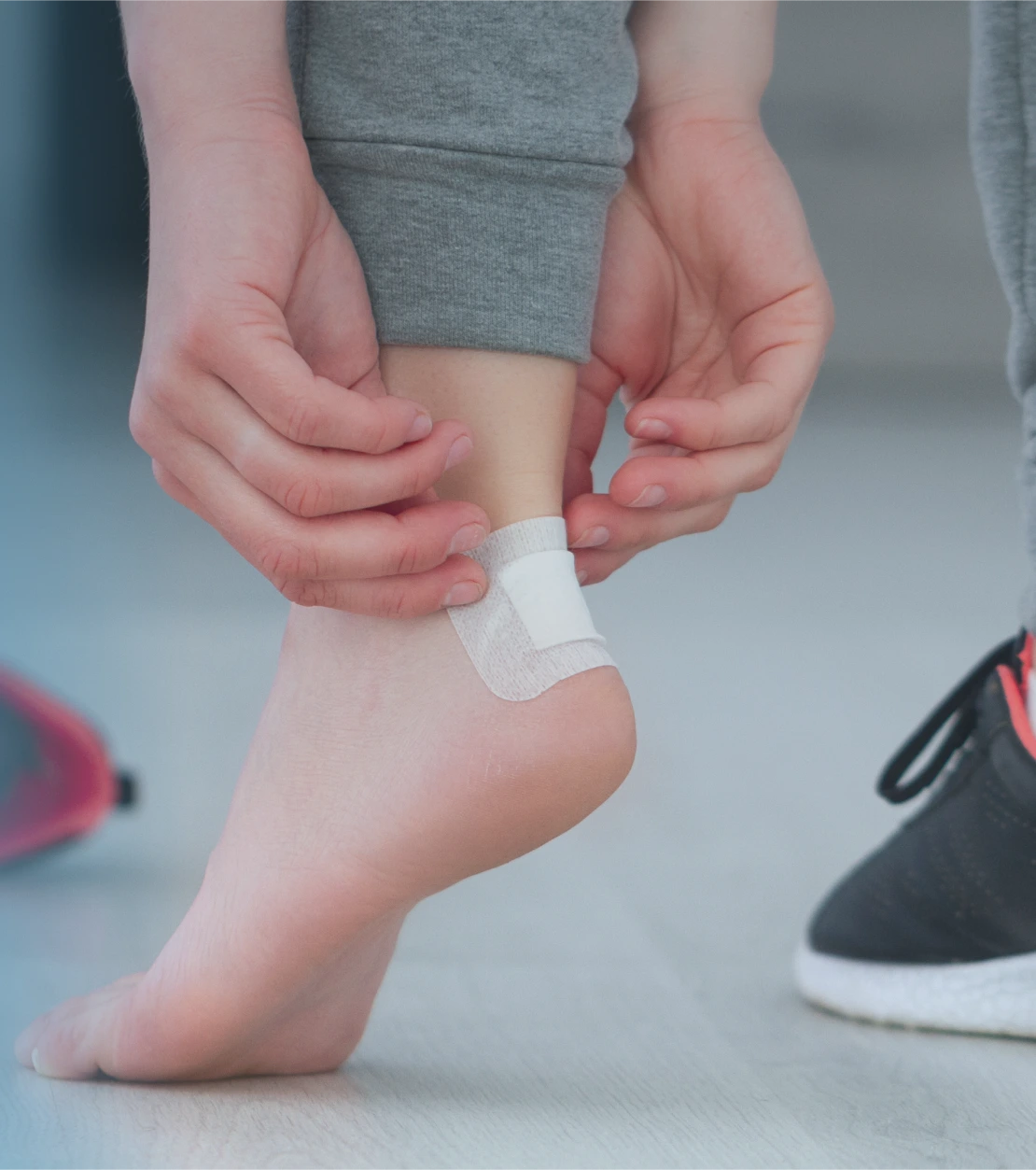
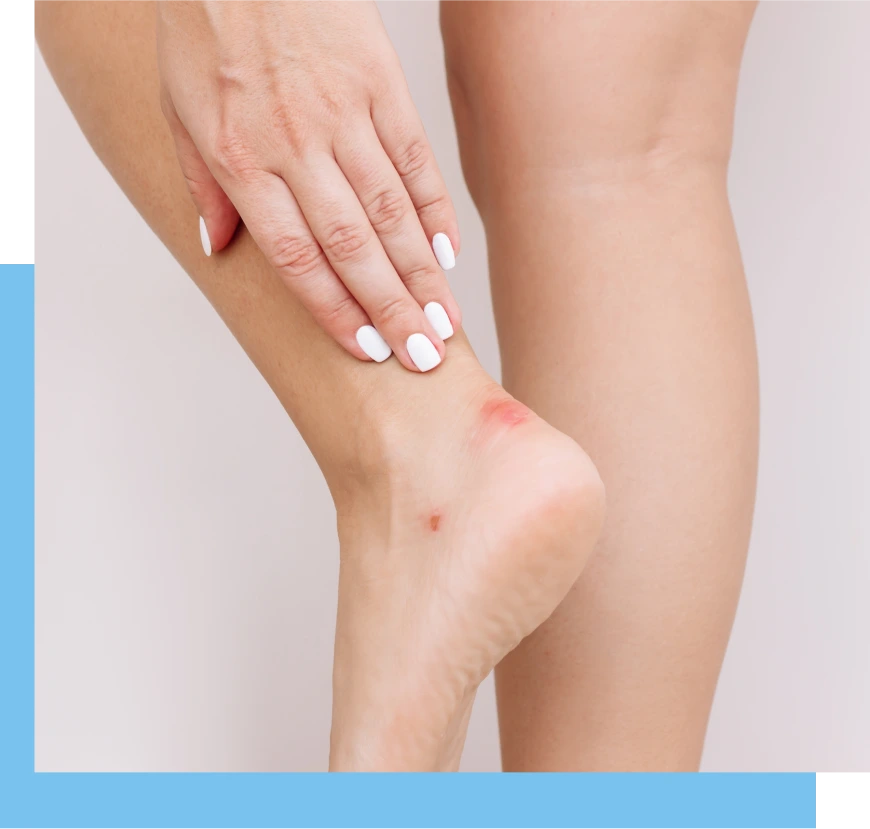
Some factors that contribute to the formation of wounds on the feet include wearing tightly fitted shoes, getting a pebble stuck in your shoe, or simply walking on rough surfaces. What may appear to be just a small inconvenience, such as a blister or callus, can worsen over time, so it’s important to be safe and seek the attention of a professional. If you’ve developed a wound, it’s recommended that you try your best to keep the weight off the area until you’re able to meet with a podiatrist.
Non-healing wounds are dangerous because delays in treatment can allow damage to progress beyond the skin and affect the underlying tissues, increasing the risk of infection and serious complications. In people with conditions such as diabetic neuropathy, nerve damage can make it harder to notice injuries early, while high blood sugar levels can slow the body’s natural healing process. Without early intervention, these wounds may worsen, potentially leading to chronic pain, severe infection, or even the need for surgical intervention.
Debridement removes dead tissue from a wound to encourage new cell growth and prevent bacteria from causing further infection. This process helps reduce inflammation and promotes a healthier healing environment. By clearing away damaged material, the wound can begin to close more effectively.
Dressing plays a key role in protecting open wounds from dirt, debris, and infection. It helps maintain the right level of moisture, which is essential for tissue repair. Regular dressing changes also allow the wound to be monitored closely for signs of improvement.
Custom orthotics support and align the lower extremities, reducing pressure points that can aggravate wounds. They are tailored to each patient’s unique foot shape and walking pattern. By redistributing weight evenly, orthotics help prevent existing wounds from worsening and lower the risk of future injuries.
Total contact casting (TCC) is a specialized care method that redistributes pressure across the entire foot. This allows wounds, particularly those related to diabetes, to heal without repeated irritation. The cast also limits movement in the affected area, giving tissues the best chance to recover.
MLS laser therapy utilizes targeted light energy to alleviate pain and inflammation while promoting tissue repair. This technology helps wounds heal properly by enhancing cellular activity. It can be an effective, non-invasive option for patients with chronic or slow-healing foot injuries.
Soundwave therapy enhances blood flow to the wound area, which is crucial for delivering oxygen and nutrients essential for wound healing. The treatment also stimulates the body’s natural healing process. Over time, this can lead to stronger, healthier tissue regeneration.
Foot and ankle surgery may be needed when wounds require surgical procedures to remove infected tissue or repair structural issues. Surgery can also address deformities that put excessive pressure on specific areas of the foot. This approach is typically reserved for severe or non-responsive cases.
Skin grafts involve transplanting healthy skin to cover wounds that cannot heal on their own. This creates a protective barrier and supports faster tissue regeneration. Skin grafts are often used to treat large or deep wounds, restoring both function and appearance.
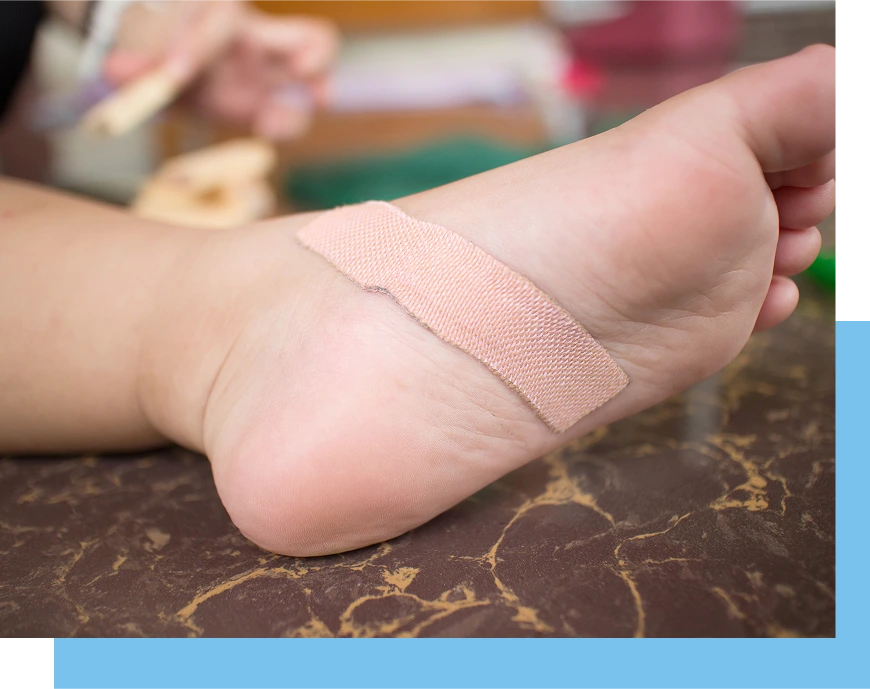
Wound care is particularly important for those with diabetes. It’s possible that what appears to be a small wound could turn into more severe foot complications down the road if left untreated.
It’s common for those with diabetes to experience neuropathy. Neuropathy is a type of nerve damage that affects the body and can cause you to lose feeling in the feet. If you’re no longer experiencing feeling in your feet and a wound develops, it’s very possible it may go unnoticed if you don’t check your feet daily.Foot wounds can affect a wide range of individuals, often arising from injuries, infections, or medical conditions that compromise the skin and deeper tissues. Certain groups are more likely to require specialized treatment due to the nature or severity of their wounds.
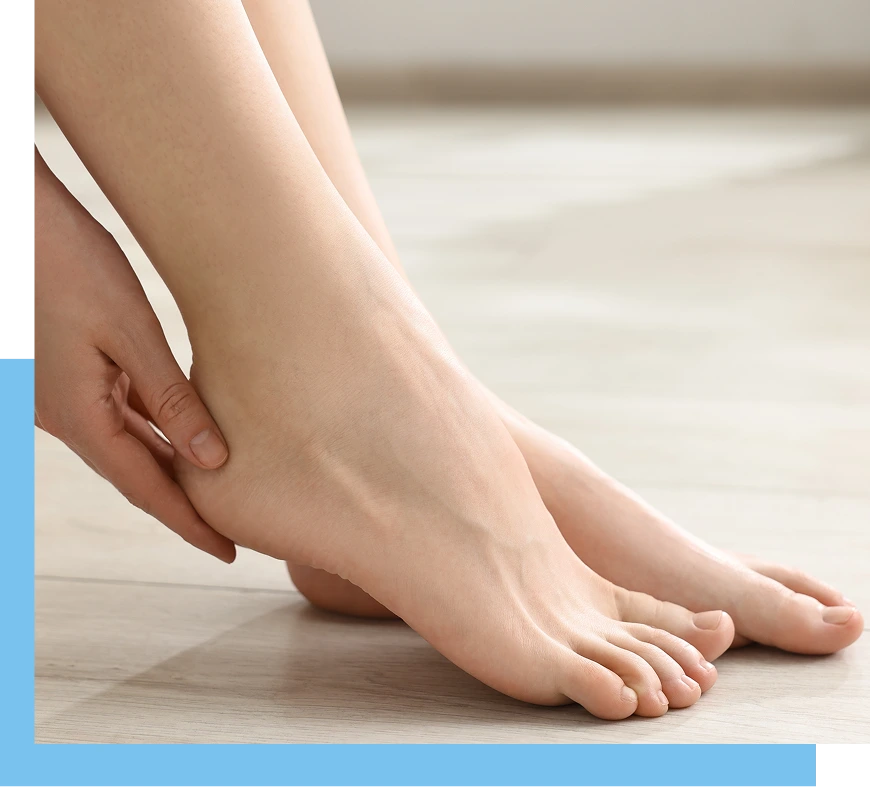
Proper treatment of foot wounds addresses both the immediate injury and the underlying factors that may contribute to delayed recovery. With the right approach, patients can achieve better outcomes and reduce the risks associated with prolonged or untreated wounds.
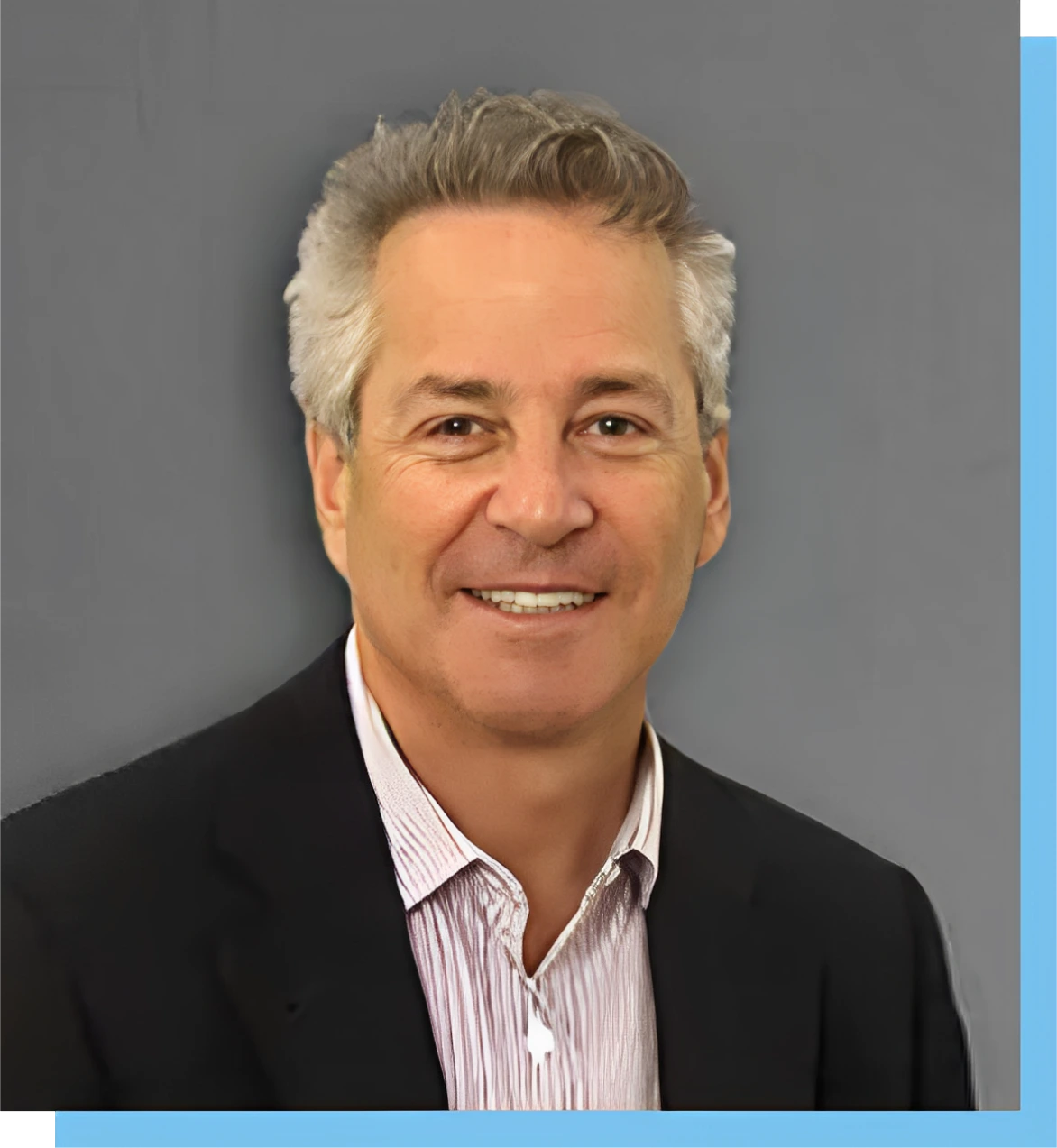
Dr. Gary Curson is a foot wound care specialist with over four decades of experience, offering patients proper wound care supported by advanced techniques and medical expertise. As a second-generation podiatrist and fellowship-trained expert, he combines proven methods with state-of-the-art technology to address even the most complex wounds. His extensive background, academic involvement, and dedication to patient-centered treatment make him a trusted choice for comprehensive foot health management.

With today’s advanced treatments, foot wound care is designed to minimize discomfort while promoting effective wound healing. Some patients may experience mild pain during specific procedures, but this is typically well-managed with appropriate techniques and care. The goal is always to ensure treatment is as comfortable as possible while supporting recovery.
Some ways to prevent wounds from developing include checking your feet daily for any injuries, washing and drying your feet thoroughly, dressing for comfort, ensuring your toes have enough space, and properly trimming your toenails straight across. Because wounds can lead to more severe complications, especially for those with diabetes, we recommend you speak with a podiatrist. Dr. Curson can provide you with information about treatment options that best suit your specific case.
Yes, we welcome patients from nearby regions, including Georgia and the Grand Strand in South Carolina. We are committed to providing the same high level of care regardless of where patients are traveling from.